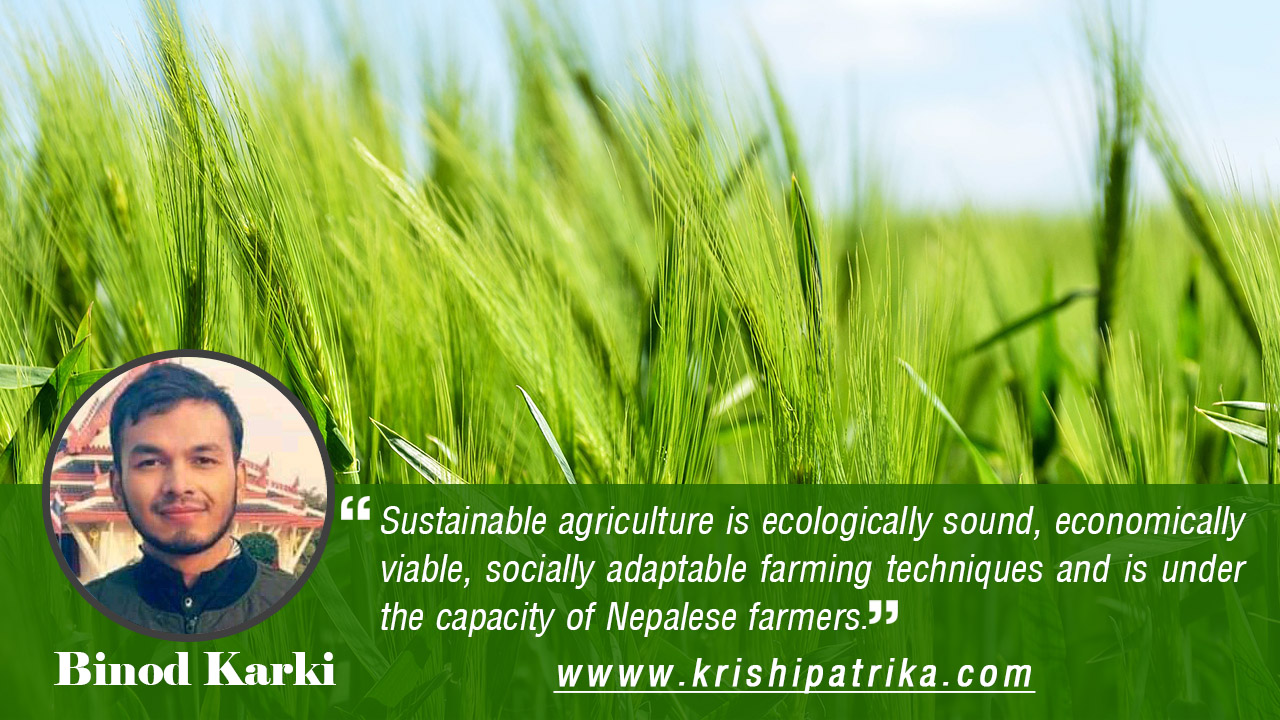
Biodiversity refers to the variety of different life forms existing on the earth. These different life forms include human beings, animals, plants, bacteria, microorganisms, etc. These organisms may vary in terms of genes, species, and the ecosystem. Biodiversity is the origin of all crops and domesticated livestock species occurring on the earth. So, Agricultural biodiversity is the diversity of crops, their wild relatives, animals, microbes, and other species that help in agricultural production.
Biodiversity is an integral part of agriculture. It is the basis of agriculture. It provides different goods, services, and values to human beings which are essential to sustainable agriculture and human beings. The use of biodiversity effectively and efficiently helps in the long-term utilization of resources and services. In Nepal, there is a wide diversity of crops, livestock, and other organisms in different ecological zones. The biodiversity found in one region is different from the other. The utilization of these different diversities in different parts of the country helps in a diversified farming system. The biodiversity found in one particular place is highly stable and adaptable and gives maximum production in that place if they are utilized efficiently.
Biodiversity helps in sustainable crop production. Use of local varieties/landraces, indigenous knowledge, and locally available resources in agriculture help in better agricultural crop production with minimum effect on the environment and the ecological system of the particular region. The diversified climatic condition of Nepal provides wide opportunities for the choice of different species of crops and livestock. The genetic diversity found in agriculture helps to make the species more resilient to climatic change and more adapted to the changing environment. For example, in the Himalayan region of Nepal, we can use locally available crops such as buckwheat, finger millets, barley, and livestock such as yak and chauri for sustainable agriculture production. Utilization of these locally available resources helps to preserve them generation after generation and fulfills the needs of the present as well as the future generation.

Biodiversity in agriculture is essential to satisfy human needs for food security and improving livelihood. It has a great role in providing food security, nutrition, and well-being for a variety of animals and plants. Use of biodiversity has also become a chance during vulnerable times of crisis by providing an income opportunity to poor farmers and helps to sustain productive agricultural ecosystems. Through the use of diverse biodiversity, the farmers can adopt different diversified farming techniques with the use of their indigenous knowledge and scientific technologies without causing any harm to the existing ecosystem. Farmers can fulfill the demand of consumers in the present and future to overcome the crisis of food insecurity.
Biodiversity can be taken as an opportunity for maintaining sustainable agriculture that can replace modern agriculture which has extremely negative impacts on biodiversity. Sustainable agriculture is ecologically sound, economically viable, socially adaptable farming techniques and is under the capacity of Nepalese farmers. Biodiversity helps to enhance sustainable farming practices and provides chances for the utilization of diverse resources.
Similarly, Sustainable agriculture utilizes nature’s goods and ecosystem services producing an optimal yield in an economically, environmentally, and socially rewarding way by preserving resources for future generations. Sustainable agriculture utilizes water, land, nutrients, and other natural resources effectively at the rate they are replenished so that resources are conserved. It also utilizes biodiversity in such a manner that biological resources are sustained. Proper utilization of biodiversity and sustainable agriculture minimizes the adoption of modern agriculture that demands more chemical inputs, especially non-renewable sources and causes loss of biodiversity.











